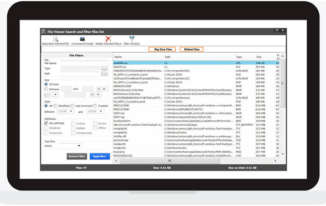The internet is never safe – it’s likely that every day somebody is trying to gain malicious access to your website or blog details. Your host provider is the link between your site and the outside world.
Issues such as the coding on your website, server maintenance and website updates have a hand in how secure your site is.

Why You Should Learn About Web Security
There are a few reasons why you need to understand web security. First, you want to protect your data from malicious parties whenever you are working on the web.
Secondly, if you own a website and it handles your clients’ personal information and other financial data, you don’t want that to end up in the hands of hackers.
Lastly, you need to consider issues to do with your privacy. The internet is a dangerous place, and hackers are getting more creative by the day.
Your Website; Is it at Risk?
When it comes to internet security, you can never be 100% safe from attacks.
Your website may be at a lesser risk if it meets the following conditions – your web server is well maintained and up to date with the latest security patches, all the applications running on your web server are well updated, if your website coding meets standard security measures and, finally, if your site handles financial transactions, which are a target for most hackers.
On the other hand, the security risks posed to your website could be higher if the webserver’s infrastructure is old and outdated and if the code on your website doesn’t feature standard security policies. This is especially a problem if your site handles a lot of personal information, especially financial data such as credit card numbers.
It is vital that you hire competent coders, such as SEO Analytics, to develop your website. Experienced coders will mitigate the number of potential security loopholes on your site, thereby making it more secure.
Common Web Security Issues
Cross-Site Scripting aka XSS
This is one of the most common website security threats around. Under XSS, attackers will install JavaScript code on your website’s frontend code.
After successful installation, the hacker can then proceed to make HTTP requests to other websites using your identity. They can a form to your site to deceive clients into revealing their passwords or they could redirect your clients to other websites and so much more.
SQL Injection
In this case, hackers will try to access your database by passing SQL commands to your websites server-side code.
Security Measures
HTTP Secure
HTTP Secure, also known as HTTPS, is encrypted, meaning your online transactions are secured from Man-in-the-Middle attacks. These attacks are common if you’re using open public Wi-Fi.
It is crucial you get an SSL certificate from your host provider to implement HTTPS on your website, regardless of whether you’re running an online store or a simple blog.
Content Security Policy
Content Security Policy protects you from Cross-Site Scripting by putting limits on specific functions. Examples are a type of stylesheets scripts that can be run, where requests can be executed, and many more.
Cross-Origin Resource Sharing
Cross-Origin Resource Sharing, or CORS for short, only allows requests from the same website to edit data on the server. This prevents attackers from using your authentication data to make requests from the server.
Without CORS, attackers can make changes on your account using your authentication tokens without you having a clue about what’s happening.
Server Security
Web servers that have fewer open ports and an equal number of services running on them offer a high level of security. However, for most firms, powerful web servers with a high number of ports are what they need to get their web application up and running.
This increases the chances of an attack due to the high number of entry points available. Nonetheless, the risks can be taken care of by updating the server’s software and applying security patches. Besides, it is essential to scrutinize web applications for any security risks/threats before installing them on your web server.
Should You Be Worried About Your Website’s Security?
As stated above, if your site holds/processes numerous requests involving personal information then hackers will probably try to look for weak points to exploit your website. Moving on, poorly-written code on your site or web server will generate bugs that will most certainly create web security issues.
Additionally, any scripts running on your website that allow your clients to interact with your site in depth also bring security threats. For example, a hacker can use SQL scripts to access your website’s databases.
Aside from attacking your website, the hacker can also use it as a pathway to target your visitors. They can do this by adding scripts that exploit the web browsers and personal computers of your clients.



